Inside the James Webb Space Telescope's control room
Wednesday, 22 December 2021 08:49 "White-knuckle" - That's how Rusty Whitman describes the month ahead, after the launch of the historic James Webb Space Telescope, now tentatively set for Saturday.
From a secure control room in Baltimore, Maryland, Whitman and his colleagues will hold their breath as Webb comes online. But that's just the beginning.
For the first six months after Webb's launch, Whitman and the team at
"White-knuckle" - That's how Rusty Whitman describes the month ahead, after the launch of the historic James Webb Space Telescope, now tentatively set for Saturday.
From a secure control room in Baltimore, Maryland, Whitman and his colleagues will hold their breath as Webb comes online. But that's just the beginning.
For the first six months after Webb's launch, Whitman and the team at High wind postpones launch of NASA's newest space telescope
Wednesday, 22 December 2021 08:08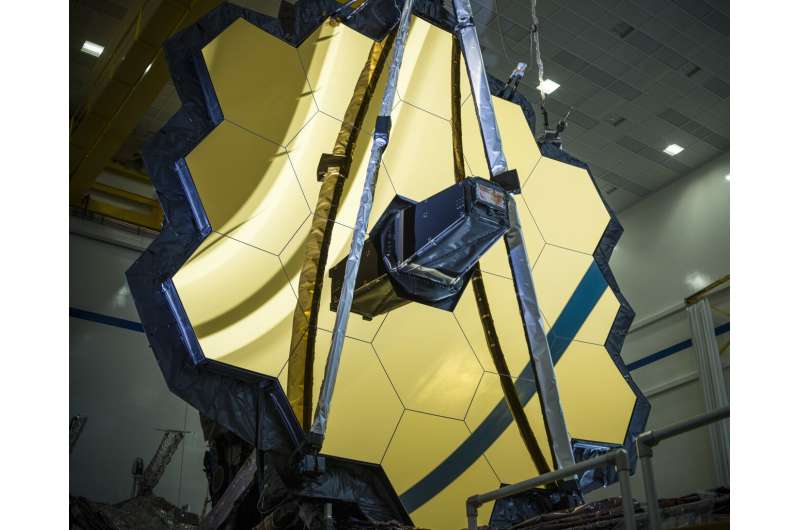
How Satellite Brought a Better Life to the Last of the Incans
Wednesday, 22 December 2021 06:45
High in the sky, amid Peru’s tallest mountains, live a people from another time. They are called the Q’eros, and they are the last traditional community of the Incan nation.
Weather bumps JWST launch to Christmas Day
Tuesday, 21 December 2021 22:37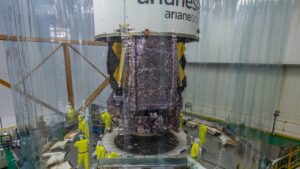
A $10 billion space telescope that has suffered years of delays because of technical problems will have to remain on Earth at least one more day, this time because of poor weather.
Views of comet Leonard from two sun-watching spacecraft
Tuesday, 21 December 2021 20:57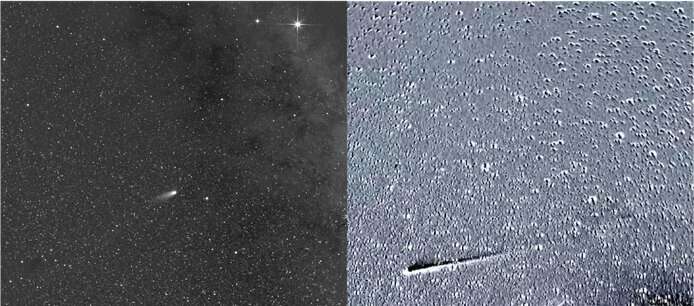
When Comet Leonard, a mass of space dust, rock and ice about a half-mile (1 kilometer) wide, makes its closest pass of the Sun on Jan. 3, 2022, it will be a journey 40,000 years in the making. Ahead of its close pass, two Sun-observing spacecraft captured these views of the comet.
The animated image at right was captured by NASA's Solar Terrestrial Relations Observatory-A spacecraft, SECCHI/HI-2 telescope, which has watched the comet since early November. This animated "difference image" was created by subtracting the current frame from the previous frame to highlight differences between them. Difference images are useful for seeing subtle changes in Leonard's ion tail (the trail of ionized gases streaming from the comet's body, or nucleus), which becomes longer and brighter toward the end of the clip.
The video below, captured between Dec. 17-19, 2021 by the Solar Orbiter Heliospheric Imager (SoloHI) aboard the ESA/NASA Solar Orbiter spacecraft, shows Comet Leonard streaking diagonally across the field of view with the Milky Way in the background. Venus and Mercury are also visible in the top right, Venus appearing brighter and moving from left to right.
AFRL and Northrop Grumman test key hardware for space-based solar power experiment
Tuesday, 21 December 2021 19:30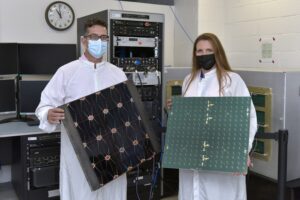
A satellite solar panel designed by Northrop Grumman to harvest energy in space to be beamed back to Earth performed successfully in lab tests, AFRL announced Dec. 21
NASA: Cobertura en español del despegue del telescopio espacial Webb
Tuesday, 21 December 2021 18:32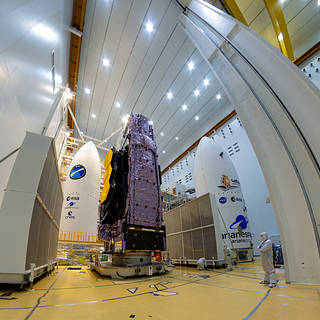 NASA: Cobertura en español del despegue del telescopio espacial Webb
NASA: Cobertura en español del despegue del telescopio espacial Webb LaserSETI installs 2nd observatory at Haleakala Observatory
Tuesday, 21 December 2021 16:40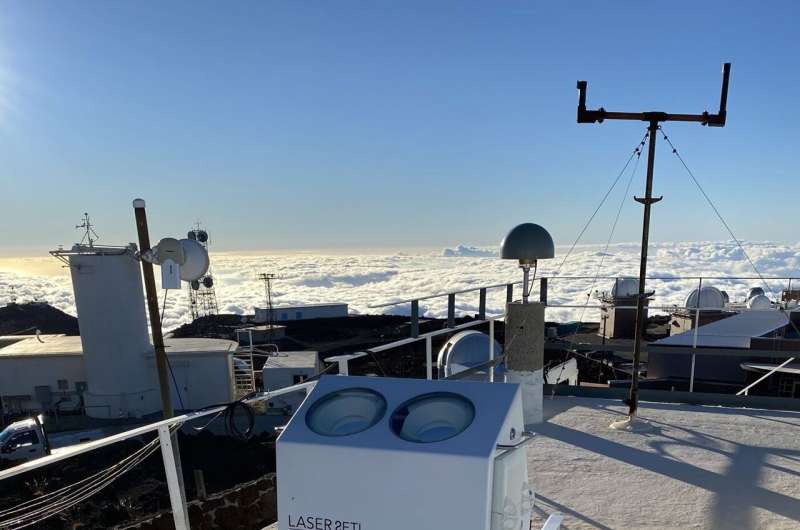
Last summer the SETI Institute began installing a second LaserSETI Observatory, this time 10,000 feet above sea level at Haleakala Observatory, thanks to the University of Hawai'i's Institute of Astronomy (IfA). As a result of challenges involving equipment damaged during shipping, supply chain delays for replacement parts, equipment malfunctions and even a blizzard in Hawai'i, the installation was delayed but is now complete. While two of the four cameras are not fully functional and will be replaced, observations are now possible and data collection is underway. The staff at the IfA has provided invaluable assistance throughout the setup process especially during times when it was not possible for LaserSETI staff to be onsite due to COVID restrictions and other logistical challenges.
SpaceX launches Christmas presents, supplies to station
Tuesday, 21 December 2021 15:06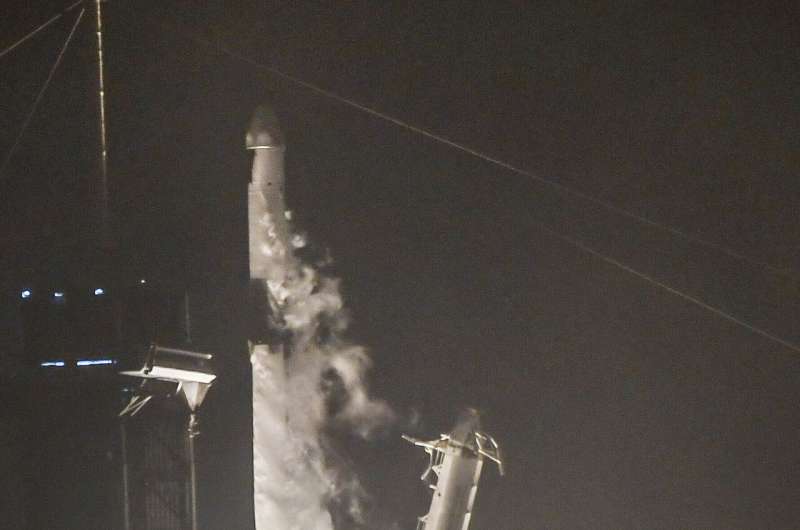
SpaceX launched Christmas gifts, goodies and supplies to the International Space Station on Tuesday and got a present in return: the company's 100th successful rocket landing.
The predawn liftoff from NASA's Kennedy Space Center was barely visible in the fog and clouds, as the Falcon rocket hoisted a Dragon capsule loaded with more than 6,500 pounds (2,950 kilograms) of gear for the station's seven astronauts. Several minutes later, the first-stage booster landed upright on an ocean platform, six years to the day that Elon Musk's company accomplished its first booster touchdown in 2015.
Engineers test an idea for a new hovering rover
Tuesday, 21 December 2021 15:02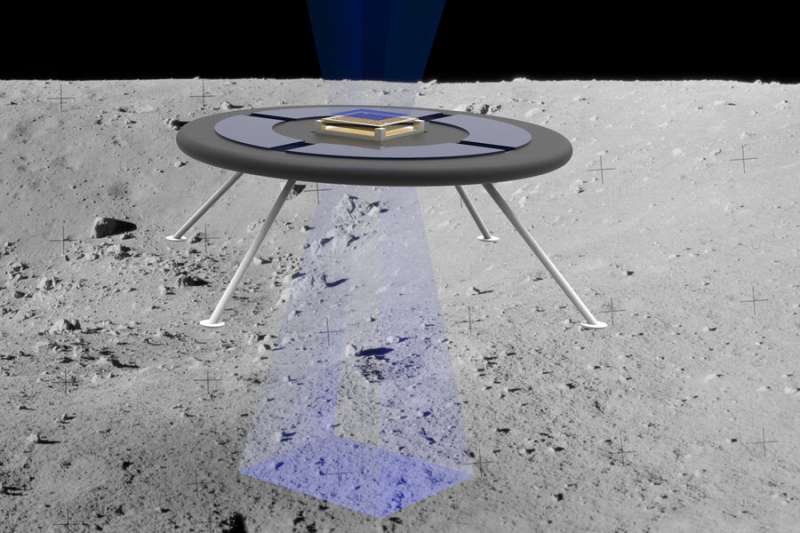
Aerospace engineers at MIT are testing a new concept for a hovering rover that levitates by harnessing the moon's natural charge.
Because they lack an atmosphere, the moon and other airless bodies such as asteroids can build up an electric field through direct exposure to the sun and surrounding plasma. On the moon, this surface charge is strong enough to levitate dust more than 1 meter above the ground, much the way static electricity can cause a person's hair to stand on end.
Engineers at NASA and elsewhere have recently proposed harnessing this natural surface charge to levitate a glider with wings made of Mylar, a material that naturally holds the same charge as surfaces on airless bodies.
A Christmas comet for Solar Orbiter
Tuesday, 21 December 2021 14:00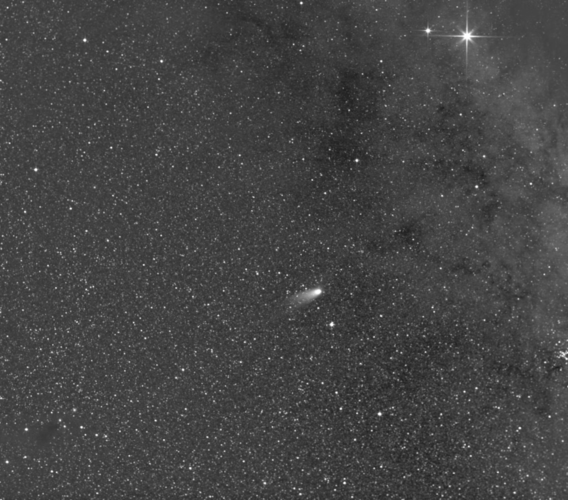
Comet Leonard, a mass of space dust, rock and ice about a kilometre across is heading for a close pass of the Sun on 3 January, and the ESA/NASA Solar Orbiter spacecraft has been watching its evolution over the last days.
NASA’s 2021 Included Mars Landing, First Flight, Artemis, More
Tuesday, 21 December 2021 14:00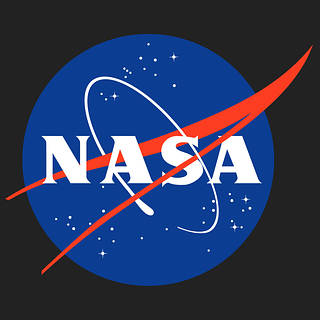 In 2021, NASA completed its busiest year of development yet in low-Earth orbit, made history on Mars, continued to make progress on its Artemis plans for the Moon, tested new technologies for a supersonic aircraft, finalized launch preparations for the next-generation space telescope, and much more – all while safely operating during a pandemic and
In 2021, NASA completed its busiest year of development yet in low-Earth orbit, made history on Mars, continued to make progress on its Artemis plans for the Moon, tested new technologies for a supersonic aircraft, finalized launch preparations for the next-generation space telescope, and much more – all while safely operating during a pandemic and Two teams report on study of Hayabusa2 asteroid samples
Tuesday, 21 December 2021 12:40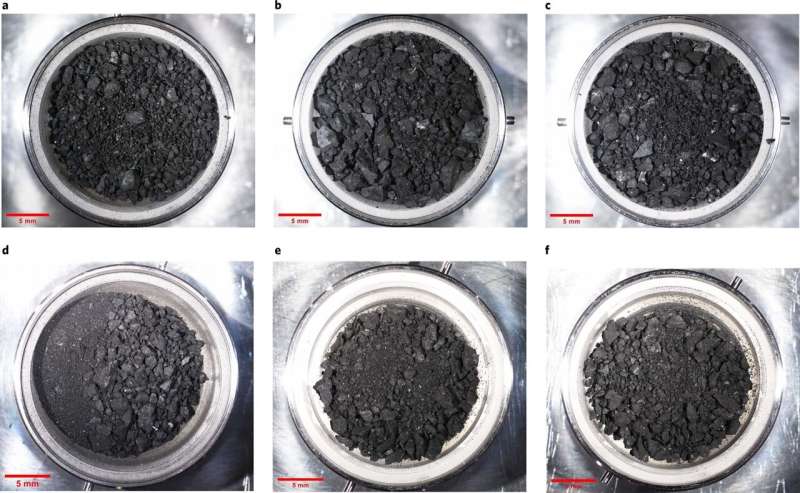
Two teams of researchers are publishing their findings thus far after initial study of samples collected from the asteroid Ryugu and returned to Earth last year by the Japanese space probe Hayabusa2. Both teams are large and both are made up mostly of researchers from institutions in Japan. Both teams have also published their findings in Nature Astronomy.
LUNA is taking shape
Tuesday, 21 December 2021 12:33
The Moon is in sight at ESA’s European Astronaut Centre (EAC) in Cologne, Germany, where a facility designed to recreate the lunar surface will soon be built. Known as ESA-DLR LUNA, the collaborative project between the European Space Agency ESA and the German Aerospace Centre DLR will provide a training ground for astronauts and a test centre for technology, equipping partners and users with the knowledge to go forward to the Moon.


